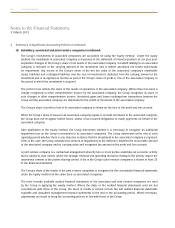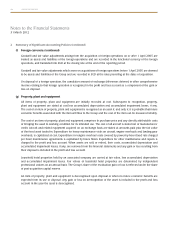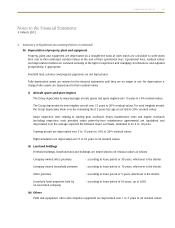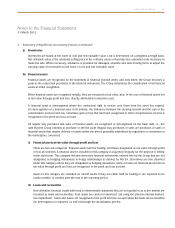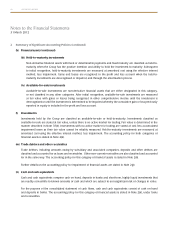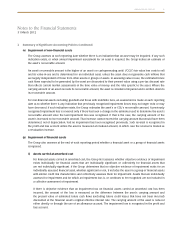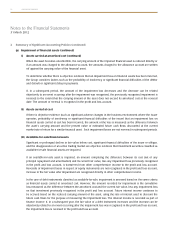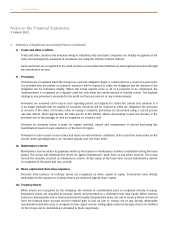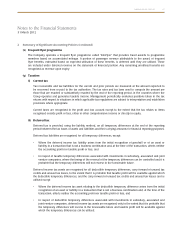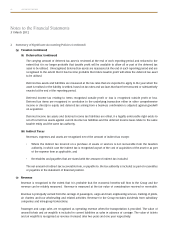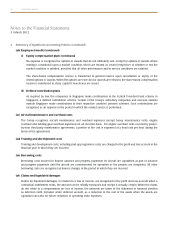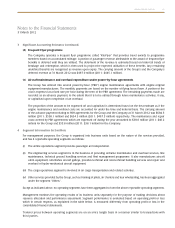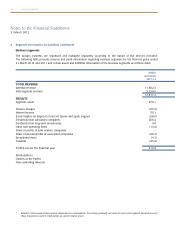Singapore Airlines 2012 Annual Report Download - page 115
Download and view the complete annual report
Please find page 115 of the 2012 Singapore Airlines annual report below. You can navigate through the pages in the report by either clicking on the pages listed below, or by using the keyword search tool below to find specific information within the annual report.
113ANNUAL REPORT 2011/2012
Notes to the Financial Statements
31 March 2012
2 Summary of Significant Accounting Policies (continued)
(q) Financial liabilities
Financial liabilities are recognised on the statement of financial position when, and only when, the Group becomes a
party to the contractual provisions of the financial instrument. The Group determines the classification of its financial
liabilities at initial recognition.
All financial liabilities are recognised initially at fair value, plus, in the case of financial liabilities not at fair value
through profit and loss, directly attributable transaction costs.
The measurement of financial liabilities depends on their classification as follows:
(i) Financial liabilities at fair value through profit and loss
Financial liabilities at fair value through profit and loss include financial liabilities held for trading and financial
liabilities designated upon initial recognition at fair value through profit or loss. Financial liabilities are classified
as held for trading if they are acquired for the purpose of selling in the near term. This category includes
derivative financial instruments entered into by the Group that are not designated as hedging instruments in
hedge relationships. Separated embedded derivatives are also classified as held for trading unless they are
designated as effective hedging instruments.
Subsequent to initial recognition, financial liabilities at fair value through profit and loss are measured at fair
value. Any gains or losses arising from changes in fair value of the financial liabilities are recognised in the profit
and loss account.
The Group has not designated any financial liabilities upon initial recognition at fair value through profit and loss.
(ii) Other financial liabilities
After initial recognition, other financial liabilities are subsequently measured at amortised cost using the effective
interest rate method. Gains and losses are recognised in the profit and loss account when the liabilities are
derecognised, and through the amortisation process.
A financial liability is derecognised when the obligation under the liability is discharged or cancelled or expired.
When an existing financial liability is replaced by another from the same lender on substantially different terms,
or the terms of an existing liability are substantially modified, such an exchange or modification is treated as a
derecognition of the original liability and the recognition of a new liability, and the difference in the respective
carrying amounts is recognised in the profit and loss account.
(r) Loans, notes payable and borrowings
Loans, notes payable and other borrowings are initially recognised at the fair value of the consideration received less
directly attributable transaction costs. After initial recognition, interest-bearing loans and borrowings are subsequently
measured at amortised cost using the effective interest method.
Gains and losses are recognised in the profit and loss account when the liabilities are derecognised as well as through
the amortisation process.



